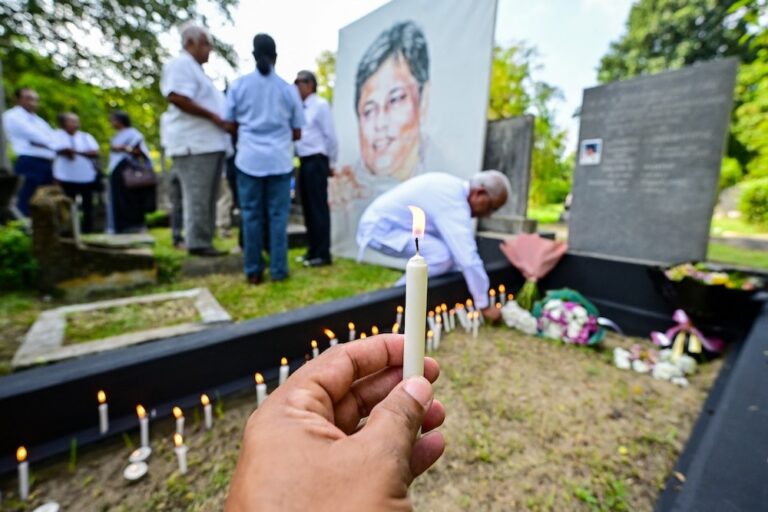(FMM/IFEX) – The following is an FMM press release: FMM URGES GOVERNMENT TO RECONSIDER IT’S BILL RE ICCPR The Free Media Movement (FMM) is disturbed to learn from media and civil society sources that the government intends to enact legislation avowedly to give effect to the International Covenant on Civil and Political Rights (ICCPR). According […]
(FMM/IFEX) – The following is an FMM press release:
FMM URGES GOVERNMENT TO RECONSIDER IT’S BILL RE ICCPR
The Free Media Movement (FMM) is disturbed to learn from media and civil society sources that the government intends to enact legislation avowedly to give effect to the International Covenant on Civil and Political Rights (ICCPR). According to human rights organisations, however, what is intended is not the enactment of the ICCPR in its entirety, creating rights and freedoms for Sri Lankan citizens over and above fundamental rights established by the Sri Lankan Constitution, but instead only the enactment of arbitrarily selected provisions of the ICCPR.
FMM also learned that the new Bill would not meaningfully expand the scope of fundamental rights available under the Constitution, but would create a confusing and ultimately meaningless framework for the exercise and protection of civil and political rights. FMM believes that the government’s intention in proposing the legislation arises out of a concern to ensure continued import tariff benefits under the European Union’s GSP Plus programme, rather than a broader commitment to human rights or desire to fulfill the EU’s requirements to strengthen the legal framework for human rights in Sri Lanka.
In particular, FMM wishes to draw attention to the fact that the draft legislation does not contain Article 19 of the ICCPR, which relates to the freedom of expression. This is presumably because the Sri Lankan Constitution, in Article 14 (1) (a), already recognises freedom of speech. However, as legal analysts have pointed out, the formulation of the positive right in Article 19 of the ICCPR is broader in scope, in that it refers to the freedom to hold opinions without interference and states that freedom of expression transcends national frontiers. Equally – if not more – important, the scope of possible restrictions on freedom of expression under the ICCPR includes the important substantive limitation that any restriction must be justified by necessity. This requirement, which is not recognised by the Sri Lankan Constitution, forces governments to justify restrictions both objectively, and by recourse to the proportionality of the restrictive measures.
In what is perhaps the most important element of the human rights regime established by the ICCPR and its First Optional Protocol from the practical perspective of journalists, FMM notes that the government has not attempted in any way to address the Supreme Court determination in the Singarasa case in 2006, which removed the right of individual access to the Human Rights Committee at Geneva. This right, recognised by the government of Sri Lanka since 1998 and used by prominent journalists and editors to obtain redress in freedom of expression matters, was declared unconstitutional by the Supreme Court.
In this context, FMM does not believe that the proposed legislation would either extend or further strengthen the rights relating to free expression in Sri Lanka. On the contrary, the proposed legislation appears to be a disingenuous attempt at persuading the EU that the government is committed to making the rights recognised by the ICCPR legal rights for Sri Lankan citizens, when, in fact, the proposed legislation would do no such thing.
In view of these serious concerns, and the fact that there has been no consultation or participation of civil society, the media and the public in the drafting of the law, we request that the government make available to the public immediately the draft Bill and the related Supreme Court determination, and further request the EU to clarify whether such a patently cynical attempt at manipulating the good governance requirements of the GSP Plus programme would satisfy its own legal obligations as set out in EU law.


